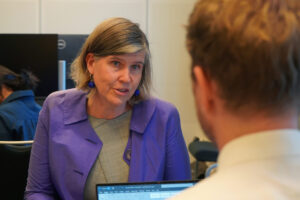New community of practice on water pricing initiated by SIWI and WRC
On 23 August SIWI together with the South African Water Research Commission (WRC) initiated a new community of practice on water pricing during a back-to-back session with the World Water Week in Stockholm.
In a number of countries, water scarcity and water pollution are now being seen as threats to national development. This is of particular importance for national planning in countries that are experiencing rapid economic growth. Water is needed for economic development, while at the same time, water quality and freshwater ecosystems need to be protected so that development can also be sustainable in the long run.
As a result, there is an increased interest from policy makers in water pricing as a solution to several of the main water challenges, but getting it right is often complex. This is due to the various pricing tools that are available, the multiple objectives they can be used for, as well as the variety of water uses for which they can be implemented. Pricing of water also affects a range of well-entrenched traditions and believes, and vested interests. Also, given the fundamental public interest in water resources management, access to drinking water and water for economic development, pricing and regulatory instruments need to be used in combination.
For instance, the balance needs to be found between charging the full cost of water for industrial use (including pollution charges), and support given to emerging industries so that they become competitive. In agriculture, food security is often invoked to subsidize water for agriculture. Subsidies may however benefit non-food crops, such as inputs to biofuel, or inefficient irrigation practices. Water pricing might be an option to break the vicious circle of low quality water services and management coupled with low cost recovery and under-financing.
Not surprisingly, the debate is characterized by misinterpretation and confusion around concepts and objectives, which hinders progress towards better water management. To address the need for a multi-disciplinary relook at how we can reflect scarcity in water prices, while at the same time recognizing environmental and social values of water.
In the full day workshop, researchers and practitioners from various fields jointly mapped the complex area of water pricing and identified knowledge gaps in view of current policy challenges, as well as options to address them. As an outcome, it was decided to initiate a community of practice which will increase the understanding across academic disciplines, through undertaking joint research, as well as identify relevant policy making processes where there is interest to make use of the new knowledge available.







